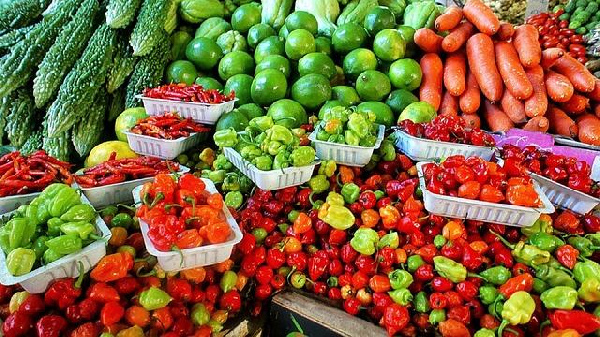 |
KAMPALA, March 28 (NNN-AGENCIES) — High prices of imported raw materials and shipping costs and the uncertainty of fuel supplies in Uganda have triggered inflationary effects in the past three months causing the prices of goods in the country to go up.
The crisis presents difficult economic choices for both government and consumers.
A quick survey at local retail outlets shows prices of common household items such as washing soap, sugar, and cooking oil have increased by more than 50 percent since December 2021, with a notable price gap between supermarket chains and shops.
The price of a bar of washing soap at a local retail shop increased to an average Ush8,000-Ush10,000 ($2.2-$2.7) up from Ush4,000 ($1.1) compared with Ush4,000-Ush6,000 ($1.1-$1.6) at supermarkets.
Sugar prices in retail shops similarly rose to Ush4,500 ($1.2) per kilogramme at the beginning of last week, up from Ush3,500 ($0.97) in December 2021. In comparison, prices charged by supermarkets range Ush5,000-Ush3,800 ($1.38-$1.05) per kilogramme, last week, compared with Ush3,500 ($0.97) per kilogramme last December.
Cooking oil hit Ush15,000 ($4) per litre in various lock-up shops from Ush8,000 ($2.2) per litre, while local supermarkets charge less than Ush10,000 ($2.76) per litre of cooking oil, hinting at possible price manipulation.
Likewise, fuel prices have risen by more than 10 percent in the past three months despite the resolution of Covid-related bottlenecks at the Kenya-Uganda border.
Higher petrol prices escalated the overall cost of doing business but public transport fares remain stable.
Whereas Uganda Revenue Authority sources attribute the fuel scarcity to unpredictable deliveries at the port of Mombasa at the beginning of this year, the Russian invasion of Ukraine will be a factor.
Also, reopening of world economies saw manufacturers to quickly capitalise on growth opportunities. However, it is clear mass manufacturers like China cannot cope with the resumption of massive economic activity in 2022 globally.
Critical imported raw materials sourced by Ugandan manufacturers include inputs required for production of cooking oil, beverages, plastics, and pharmaceuticals.
Daniel Birungi, the executive director of the Uganda Manufacturers Association said; “Many local manufacturers have raised their stock mobilisation levels from 90 days to 180 days for imported raw materials over the past three months because of huge scarcity of manufacturing inputs within foreign markets.’’
He went on to say that suppliers such as those of crude palm oil in Malaysia would prioritise bulk orders for say from the US, rather than a smaller order from Uganda.
Moses Kaggwa, the director for Economic Affairs at Uganda’s Finance Ministry said the government is looking into options to tame the runaway commodity prices.
“We are studying fiscal policy options in response to increasing common consumer goods prices and also value chain management interventions. We feel a modest reduction in excise duty charged on local washing soap would yield a small saving of Ush300 ($0.08) for consumers and that would not yield much value for them. A Ush100 ($0.03) reduction on fuel import duty would generate a tax revenue loss of Ush200 billion ($55 million) during the remainder of this financial year.
A Ush500 ($0.13) reduction in the same import duty would yield a tax revenue loss of Ush500 billion ($137.9 million) during the same period and might affect government funding for things like payment of domestic arrears.
However, production of crude palm oil in Malaysia is likely to improve this year while Malaysia has also relaxed the 20 percent domestic retention quota for crude palm oil output.” — NNN-AGENCIES





